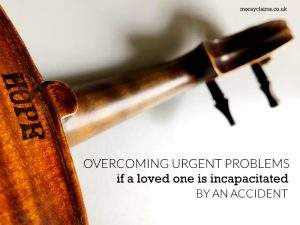Once we know something, we find it difficult to imagine what it was like not to know it. This is known as the Curse of Knowledge. Here’s an example. In a 1990 experiment, pairs of people had to try to identify 120 well-known songs – e.g. Happy Birthday to You. One of them was to tap out the rhythm on a table and the other had to guess the song from that rhythm alone. On average, the listeners guessed only 3 out of 120 songs – a success rate of just 2.5%. Startlingly, though, when the tappers were asked to predict how many of the songs the listeners would guess, they reckoned the odds were 50/50 (50%). The tappers got their tune identified 1 time in 40, but they thought it would be 1 time in 2. Of course, the tappers were hearing the tune in their heads as they tapped. They couldn’t imagine what it was like for the listeners to hear isolated taps – more akin to Morse Code – rather than a song. The tappers’ knowledge had “cursed” them. In road safety terms, it Continue Reading
Overcoming urgent problems if a loved one is incapacitated by an accident
When someone is seriously injured in an accident, the effect does not stop with that person. In order to get a person’s life back on track after an accident, their family may need a lot of support too. Problems can pile up quickly. If the injured person is incapacitated – maybe in a coma – the rest of their family may soon be in crisis. How are your bills going to be paid? How are your children going to cope? Particular issues which can cause overwhelming strain include the inability to get access to the incapacitated person’s bank account in order that the day-to-day running of the family household can be maintained. These are problems you can plan for. And, even if you have not planned, there are still things you can do to overcome the difficulties. In this article, we’ll look at what you can do to plan for unexpected events such as this. We’ll then go on to look at what options you have to recover the situation if you need to try to sort things out after such a Continue Reading
Claiming for wage loss when you are not losing any wages
You don’t usually get something for nothing. We’ve talked about that issue before when answering the question: How does your personal injury solicitor make money if they do not charge you anything? In the context of a personal injury compensation claim, claiming for wage loss when you are not losing any wages sounds like getting something for nothing – getting a windfall - but it’s not like that at all. To understand how you might claim for future wage loss when you’re not currently losing any wages, we need to consider 3 things, which we’ll do in the remainder of this article. Firstly, how is wage loss normally calculated? Secondly, in what circumstances, might you be able to claim wage loss when you’re not losing any wages? And, finally, how is the calculation made? Let’s look at wage loss claims generally, for a start. If you have a personal injury claim, wage loss may be an important part of your claim. It may be the main reason you decided to make a claim at Continue Reading
What PPE duties do employers have?
How bad for you is 37 grammes of saturated fat? According to recommendations from the US Department of Agriculture (USDA) in 1992, a normal diet should contain no more than 20 grammes of saturated fat per day. Do you have any idea what 37 grammes of saturated fat looks like? USDA research found that a typical medium-sized bag of film theatre popcorn contained that much saturated fat. But unless you’re a nutritionist, the bare quantity '37g' might not be too great in convincing you of the riskiness of your movie-time snack. Instead, USDA got their message across by highlighting the other foods which taken together would contain the same dosage of artery-clogging fat as the apparently innocent between-meals filler - A Big Mac with chips, plusA bacon and eggs breakfast, plusA steak supper with all the trimmings, equals37g of saturated fat. The scientific analysis of the popcorn amounted to a risk assessment. USDA needed to get the hazardous results across to the Continue Reading



